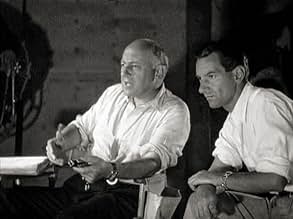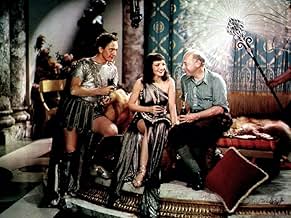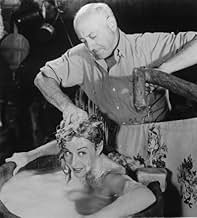Cecil B. DeMille(1881-1959)
- Producer
- Director
- Editor
His parents Henry C. DeMille and
Beatrice DeMille were playwrights. His
father died when he was 12, and his mother supported the family by
opening a school for girls and a theatrical company. Too young to
enlist in the Spanish-American War, Cecil followed his brother
William C. de Mille to the New York
Academy of Dramatic Arts, making his stage debut in 1900. For twelve
years he was actor/manager of his mother's theatrical company. In 1913,
Jesse L. Lasky,
Samuel Goldwyn and DeMille formed the
Lasky Film Company (which years later evolved into Paramount Pictures),
and the next year went west to California and produced the successful
six reeler, The Squaw Man (1914),
of historical significance as the first feature length film produced in
Hollywood. He championed the switch from short to feature-length films
and is often credited with making Hollywood the motion picture capital
of the world. Rather than putting his money into known stars, he
emphasized production values. He also developed stars, notably
Gloria Swanson. He produced and directed
70 films and was involved in many more. Many of his films were romantic
sexual comedies (he is supposed to have believed that Americans were
curious only about money and sex). His best-known were biblical/religious epics: Joan the Woman (1916), The Ten Commandments (1923), The King of Kings (1927), The Sign of the Cross (1932), The Crusades (1935), Samson and Delilah (1949), and The Ten Commandments (1956). From 1936
to 1945 he hosted and directed the hour-long "Lux Radio Theatre", which
brought the actors and stories of many movies to the airwaves and
further established him as the symbol of Hollywood. He appeared as
himself in the classic
Sunset Boulevard (1950) with his former
star Gloria Swanson as the fictitious
disturbed former silent film actress Norma Desmond. His niece
Agnes de Mille was the acclaimed
choreographer of both the original Broadway production and film version
of Oklahoma! (1955).










































